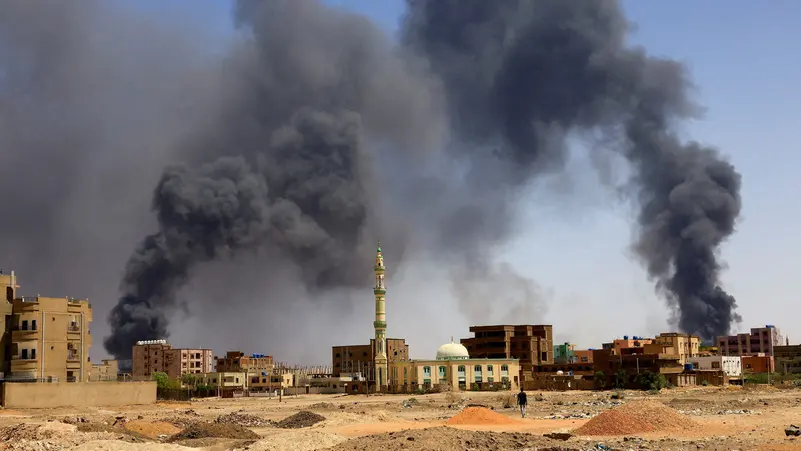reportedly carried out airstrikes in the capital Khartoum on Monday in an effort to gain headway on its paramilitary opponents hours before a week-long truce meant to permit humanitarian delivery was about to go into effect.

According to witnesses, the army also launched airstrikes late on Sunday, targeting paramilitary Rapid Support Forces (RSF) mobile units that have been operating throughout residential areas of the capital since the two military factions’ conflict broke out on April 15.
Follow our Google News channel online or in the app to see all the most recent news.
A truce will be in effect beginning at 21:45 local time (19:45 GMT) according to both parties. Previous ceasefires have not stopped violence, but this is the first one that was officially agreed upon after talks.
The Saudis and Americans who mediated the agreement following negotiations in Jeddah are included in the monitoring system for the ceasefire, together with members of the army and the RSF.
The agreement has sparked hopes of a halt to a conflict that has displaced almost 1.1 million people, including more than 250,000 who have fled into other nations, endangering the stability of a volatile area.
Residents in Khartoum, Omdurman, and Bahri—the three cities that make up the larger capital and are divided by the confluence of the Blue and White Niles—reported airstrikes on Monday. They said that the center of Khartoum could hear fighting.
The RSF has been difficult for the army to drive out of districts where it has taken homes and important locations in the heart of Khartoum. The army has relied heavily on airstrikes and heavy artillery, but the RSF, which has its origins in the dreaded militias who fought with the government in Darfur, is skilled at ground combat.
Trapped
Millions of people are confined to their houses or neighborhoods in Khartoum after more than five weeks of warfare.
Residents have reported escalating looting and anarchy as well as life-threatening power and water outages. In certain places, food supplies have been running short, and the majority of hospitals have stopped taking patients.
The Jeddah-mediated deal is aimed at enabling help in and reestablishing key services. In order to forge a long-term peace agreement with civilian participation, mediators believe more negotiations would be required to demand the withdrawal of military from urban centers.
A new political transition toward elections under a civilian administration was being negotiated by RSF commander Mohamed Hamdan Dagalo and army leader Abdel Fattah al-Burhan when the conflict in Khartoum broke out.
Following the removal of previous president Omar al-Bashir in a popular revolt in 2019, Burhan and Hemedti became the main seats on Sudan’s governing council, sharing power with civilian organizations.
As the date to take over control of the transition to civilians drew near in 2021, they attempted a coup.
Fighting has also erupted since last month in Darfur’s western area, which has already been ravaged by 20 years of violence and turmoil that persisted despite a peace agreement with certain parties in 2020.
The World Health Organization (WHO) reports that 705 people have died and at least 5,287 have been wounded across Sudan, however the actual death toll is thought to be far higher.






